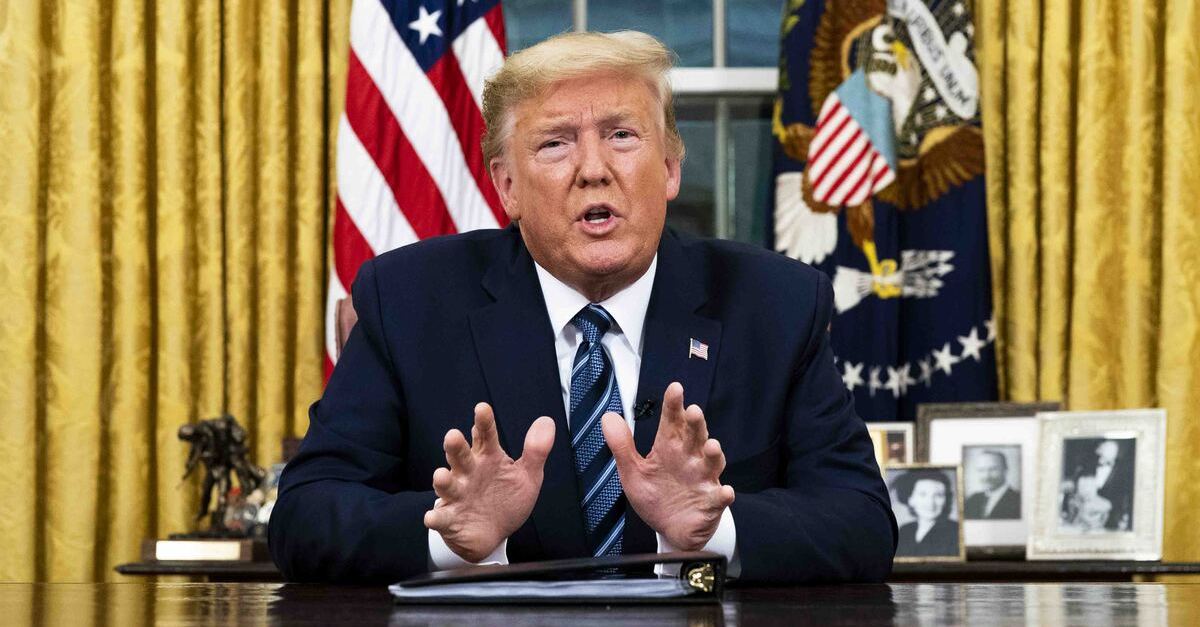
President Donald Trump invoked the Defense Production Act (DPA) of 1950 on Wednesday in order to marshal the nation’s resources against the rapidly spreading Coronavirus pandemic.
The powers conferred upon a president who invokes the DPA are necessarily broad. Passed by the administration of Harry Truman, the DPA was essentially an effort to consolidate some of the massive federal power accrued by his predecessor, Franklin D. Roosevelt, during World War II and the New Deal.
The general warrant for strong executive authority under the statute notes that “the security of the United States is dependent on the ability of the domestic industrial base to supply materials and services for the national defense and to prepare for and respond to military conflicts, natural or man-caused disasters, or acts of terrorism within the United States.”
Specifically based on the First and Second War Powers Acts of 1941 and 1942, Congress has subsequently expanded the meaning of “national defense” over successive reauthorization bills over the past 70 years—while allowing other and more extreme provisions of the DPA to fall by the wayside.
One expansive and perhaps surprising power that still remains in the DPA’s grant of authority is the ability for the executive branch to issue what are termed “allocations.”
The statute notes, in relevant part:
The president is authorized to…allocate materials, services, and facilities in such manner, upon such conditions, and to such extent as he shall deem necessary or appropriate to promote the national defense.
Not used since the Cold War, allocation authority harkens back to—and is based upon—the actual wartime efforts of the struggle against the Axis Powers during World War II. Then, Roosevelt tightly managed and controlled industry in order to ensure that goods needed during the war effort were produced by industry in a timely, efficient and effective manner. This was, in no uncertain terms, America’s central planning regime.
The Controlled Materials Plan is widely understood to have helped the United States overcome numerous initial missteps and primed the “war machine” for eventual victory by reining in the use and distribution of certain natural resources deemed integral to the war effort. The allocation authority mirrors this effective production control—but with an even broader suite of potentials.
Essentially, this means the Trump administration—if it so desires—may decide to declare certain materials as well as services, data and facilities essential components of the nation’s collective fight against the “invisible enemy” of the Coronavirus and COVID-19.
In real terms, this means the government would more or less be allowed to requisition away—and control—materials to its heart’s content so long as the White House says that what it is doing is being done in service of the potentially years-long battle against the contagion.
For example, based on a real military program, if the Trump administration determined that federal air power was insufficient, civilian aircraft could be “allocated” for public use in order to augment the nation’s national defense against/during the spiraling Coronavirus pandemic. It’s easy to extend the logic here to see how quickly hospitals, other facilities, transportation, delivery services, etc. could be swiftly enlisted or “allocated” under the DPA.
What else could be encompassed in such an expansive grant of authority? Just about anything—with some key exceptions.
Chief among those limits are the ability to interfere with employment contracts. That’s out. So is the ability to ration goods or services. Both are expressly foreclosed against.
Also out of reach—absent congressional authorization—are wage and price controls. But don’t be surprised if such an ask and grant occurs as the crisis drags on for months and global supply chains dry up—as many experts now expect to happen.
The president is also vaguely expected to equitably distribute allocation orders and is not supposed to force individuals to give up “a disproportionate share of the civilian market“—prime language to sustain legal challenges and to allow Jeff Bezos at least a very small sigh of relief.
[image via Doug Mills-Pool/Getty Images]
Have a tip we should know? [email protected]